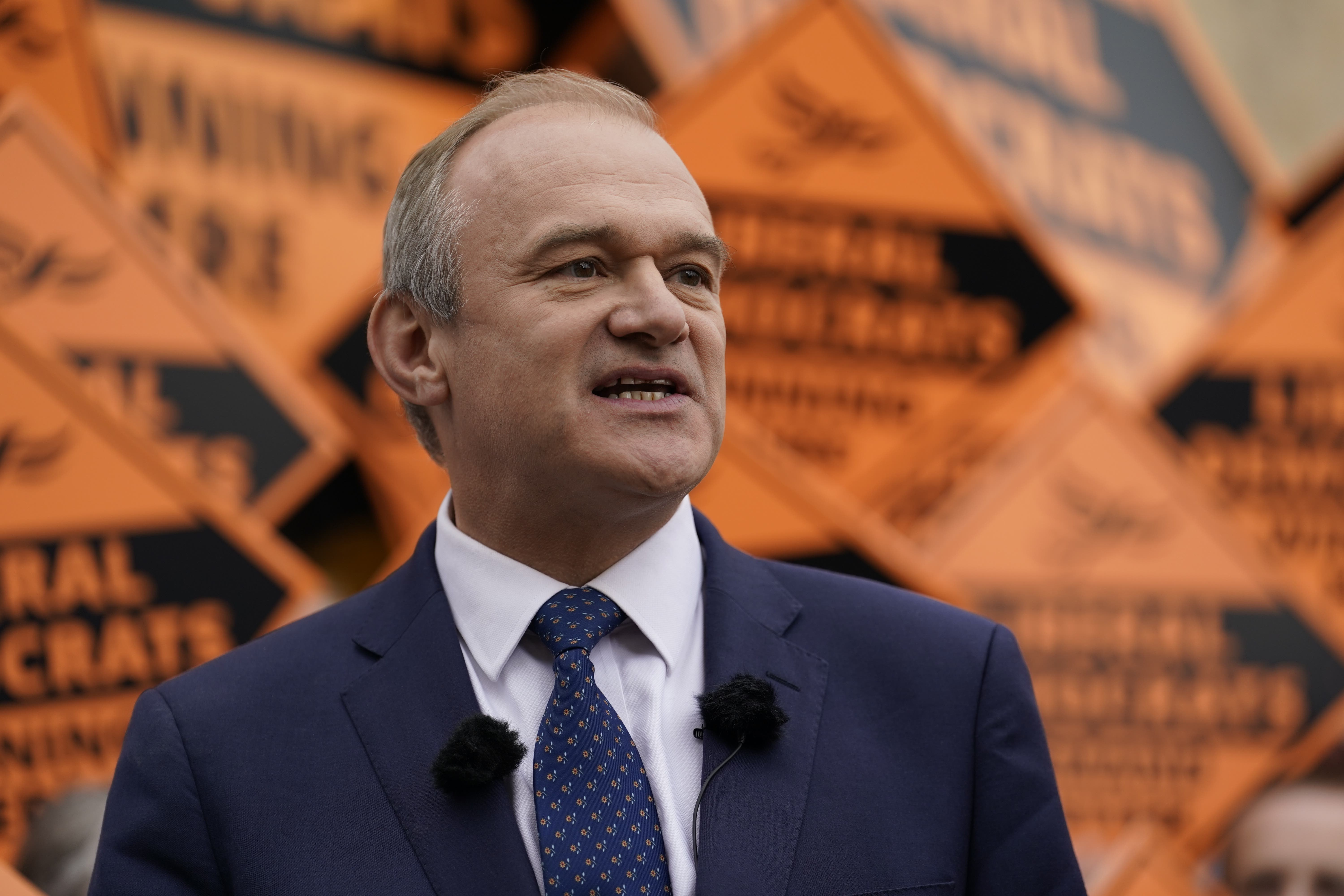
Labour supporters have been urged to vote for the Liberal Democrats in 17 key Tory seats at the next general election as part of an ambitious tactical voting campaign.
The centre-left think tank Compass has also identified 43 marginals where Lib Dem backers may consider switching to Keir Stamer’s party as the best way of ousting Conservatives.
The organisation has drawn up a list of 62 constituencies described as “progressive tragedies” because a Tory candidate triumphed – despite the combined progressive vote being higher than votes for right-wing parties.
The Win as One campaign will encourage left-leaning voters to look carefully at who has the best chance of winning, as well as prioritising its resources to help candidates who are backing proportional representation (PR).
Neal Lawson, director of Compass, pointed to polling data which show that the large Labour lead is primarily down to anti-government anger – warning that Sir Keir may need to work with the Lib Dems in the event of a hung parliament.
“One of the problems about Labour doing so well in the polls is people thinking, ‘I know what need to do to defeat the Tories – vote Labour’,” he told The Independent.
“In many places that is the case. But in lots of places in 2019 people should have voted for the Liberal Democrat candidate and helped them win more seats, particularly in the south of England.”
“I understand that some people want to vote come what may for their party. But if that results in another period of Conservative rule, maybe it isn’t the best use of your vote.”

Analysis shared with The Independent suggests Lib Dem, Green and other left-leaning voters keen to avoid a Tory victory should consider backing Labour in dozens of seats in the party’s so-called “red wall” heartlands.
Of the 43 “progressive tragedy” seats in which Labour finished second at the last election, 31 are in the north of England, Midlands and Wales.
But Sir Ed Davey’s party appear to present the strongest challenge in the Tories’ southern “blue wall”. Of the 17 crucial marginals in which the Lib Dems finished second, 15 are in the south of England and London.
A YouGov survey carried out for Compass shows 63 per cent of the public believe Labour’s big poll lead is mainly about anger against the government. Only 11 per cent think it is based on support for Labour.
The Compass director said Labour should be prepared to work with the Lib Dems if there is a hung parliament, or if Sir Keir commands only a narrow majority.
The Win as One campaign is keen to encourage candidates who back PR and wider electoral reform after the election. “We want to change the government, but we also want to change the electoral system,” said Mr Lawson.

He added: “We’re saying to voters – back the best-placed progressive. But as a campaign, we will also offer resources to candidates if they back proportional representation. If you don’t back PR, we will shift resources to those who do.”
The think tank director, a former speechwriter for Gordon Brown, was encouraged that Labour members backed a motion to ditch first-past-the-post and embrace PR at this year’s party conference.
Although it is not binding on Sir Keir and his team, Mr Lawson said the tide is turning among Labour’s grassroots backers.
“The conversion of trade unions and party members on the ground to PR means we’re expecting the majority of Labour MPs after the next election to be supporters of PR,” he said.
Labour and Lib Dem sources played down the idea of any kind of electoral pact ahead of the general election expected in 2024. But recent by-elections have seen parties informally backing off from each others’ key target seats in a bid to manage their resources.
“Come the general election, they could swap target seat information and shift resources accordingly,” said Mr Lawson. “The question is, is that enough? We’re trying to make tactical voting systematic.
“Both Labour and the Lib Dems seem reluctant to be seen working together. They’re scared of the right-wing press saying you’re colluding – but the right-wing press will say you’re colluding whether you speak to each other or not.”
Steve Williams, a Compass campaigner and Green Party councillor in Surrey, helped spearhead a tactical voting movement in Tory chancellor Jeremy Hunt’s constituency at the last general election.
Although Mr Hunt was re-elected, the drive helped to deliver the largest increase in the Lib Dem vote of any constituency at the 2019 election.
“What we were trying to do was to pull people together from the progressive side of politics,” said Mr Williams. “We had the revelation that this progressive majority, if organised, could actually unseat a Tory MP.”







